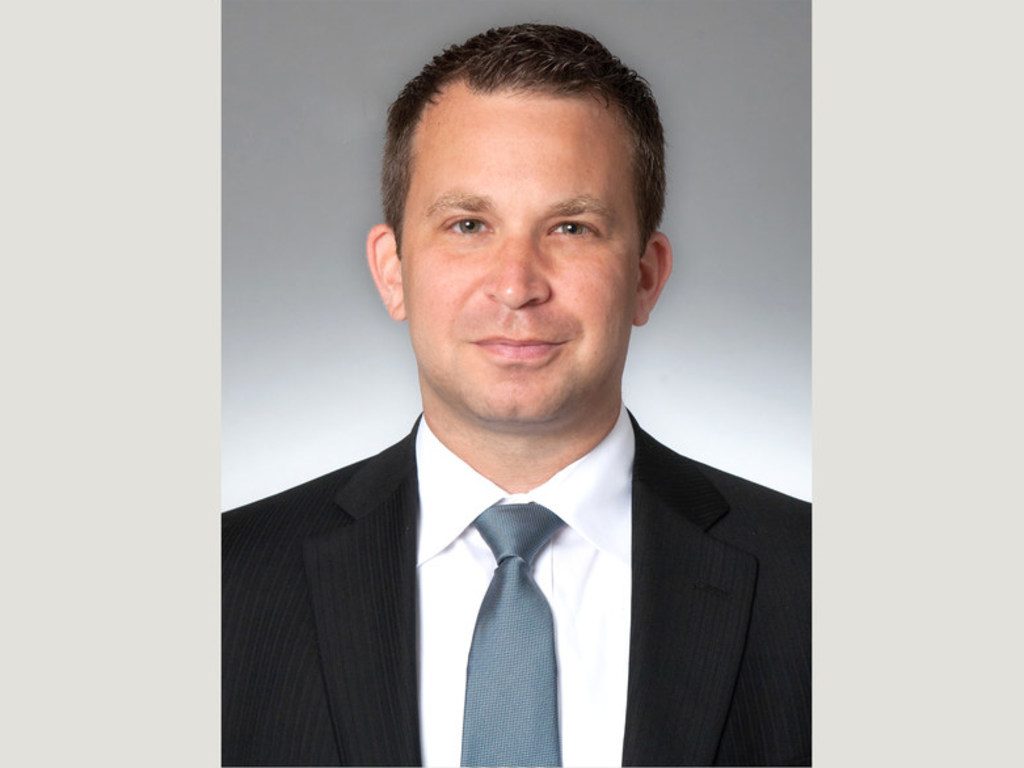Dr. Larry Perlman Traces His Journey From Examination Room to Courtroom
The Foley & Lardner partner has made not one, but two careers in advising clients facing difficult circumstances.
March 29, 2019 at 04:16 PM
6 minute read
 Dr. Larry S. Perlman, Foley & Lardner. Courtesy photo
Dr. Larry S. Perlman, Foley & Lardner. Courtesy photo
Dr. Larry Perlman thinks of himself as a people person. It's a point he returns to again and again when discussing his unusual career path, which saw the Foley & Lardner partner make a hard pivot from working as a physician to practicing the law as a labor and employment attorney.
“I like people,” Perlman said. “In my practice I deal with other attorneys, but I also spend a good amount of my time dealing with human resources professionals, dealing with the folks on the ground who are supervising others and getting their side of the story. If you did a pie chart of who I talk to … it runs the gamut of folks from all levels.
“And so I'm always speaking with people who don't necessarily have the same degrees as me and don't necessarily have the same viewpoint as me … and that's a wonderful thing. It keeps things interesting.”
If interacting with people is one of Perlman's guiding principles, curiosity is unquestionably his North Star.
“When I was in high school I had two major extracurricular activities,” he recalled of his time at Stuyvesant High School in New York City. Quipping that he wasn't one for athletics, Perlman said he conducted biomedical research at New York University with the Science Talent Search program and participated in the debate team. ”I always had these two academic interests: one very science-oriented, one more liberal arts-oriented.”
His dual interests led him to enroll at the University of Michigan for a combined seven-year pre-med and medical school program.
“When I went and interviewed at Michigan, they said, 'What we're looking for is people who may not ordinarily go to medical school, people who have other interests who are more liberal arts-minded and folks who we think will make better doctors … because you take a broader view of the world,” he said. Noting his working-class background and the lack of doctors and lawyers in his family, Perlman jumped at the opportunity.
“The program doesn't exist anymore, and I think that's too bad,” he said. “But out of my class of 40-some-odd people, close to half of us who graduated don't practice medicine as our primary career right now. They wanted folks who might not ordinarily go into medicine. That's what you get, right?”
After graduating, Perlman rose to the rank of chief resident at Long Island Jewish Medical Center before moving to Detroit to work in private practice. His stint as a physician was defined by tension, with his love for patient-centric care pulling him in one direction as his inquisitive nature tugged him toward another.
“I love seeing patients; I love getting to know people and the trust that people would put into me in terms of allowing me to participate in serious and intimate decisions … that was really cool,” he said. “It was wonderful, and it was a privilege.”
However, Perlman didn't feel his curiosity was being sufficiently fulfilled.
“On Sunday nights I did not look forward to going to work,” he said. “I had this gap where I said, 'I like what I do, I go to work and I talk to people, and I banter with patients and help them with their maladies, but … I'm not getting what I need intellectually.' I started thinking 'I don't know if this is what I want to be doing for the next 30, 40, 50 years.' ”
Perlman credits his pediatrician-wife Varisa with helping him cut through the malaise and figure out what he wanted to do with his career. She told him, “ Look, I know you … If you had not been on the combined program, you would have applied to law school, wouldn't you have?”
With his wife's blessing and support, Perlman returned to the University of Michigan, this time as a law student. He characterized the experience as “completely different from the first time around.”
“What you realize is school is a completely selfish endeavor,” he said. “I was practicing medicine. If I screwed up … someone could die. If you go the other way from law to medicine, if you screw up, someone could lose a lot of money or lose their freedom. In school if you screw up, that bad grade is yours and yours alone. When you realize that, you look at school in a whole different light.”
With his law degree in hand, it didn't take long for Perlman to feel at home in his new profession.
“What spoke to me from day one was the concept of resolving disputes in a format where human beings make the rules,” he said. “When you're litigating a case, what your job ends up being is within that framework we created — and I think it's a great thing we created — convincing others that a client's actions fit within that framework. And it's just such a cool challenge to me.”
Despite the difference in venues, Perlman maintains his day-to-day problem-solving in the labor and employment field is not all that different from what he did as a doctor. Reflecting on a recent private proceeding, he drew a direct line between his current success and his bygone medical career.
“My wife asked how it went, and I said I think I did really well,” Perlman said. ”My wife said, 'You know why that is, right? You've prepared people to have open-heart surgery; you've prepared people to have discussions about end of life and what to do … of course you have a skill in preparing people for testifying.' ”
For a moment, Perlman paused. “ I thought that was really cool because … I think she's right,” he laughed.
Dr. Larry Perlman
Born: 1973
Spouse: Varisa Perlman
Children: Isabel and Andre
Education: University of Michigan, J.D., 2007, M.D., 1998, B.S., 1995
Experience: Partner/senior counsel, Foley & Lardner, 2007–present; Physician, Detroit, 2004-2007; Chief resident, Long Island Jewish Medical Center, 2004; Resident, Long Island Jewish Medical Center, 2002-2004
This content has been archived. It is available through our partners, LexisNexis® and Bloomberg Law.
To view this content, please continue to their sites.
Not a Lexis Subscriber?
Subscribe Now
Not a Bloomberg Law Subscriber?
Subscribe Now
NOT FOR REPRINT
© 2025 ALM Global, LLC, All Rights Reserved. Request academic re-use from www.copyright.com. All other uses, submit a request to [email protected]. For more information visit Asset & Logo Licensing.
You Might Like
View All
Turning the Shock of a January Marital Split Into Effective Strategies for Your Well-Being
5 minute read
Latest Boutique Combination in Florida Continues Am Law 200 Merger Activity
3 minute read
South Florida Real Estate Lawyers See More Deals Flow, But Concerns Linger
6 minute read
Trending Stories
- 1Uber Files RICO Suit Against Plaintiff-Side Firms Alleging Fraudulent Injury Claims
- 2The Law Firm Disrupted: Scrutinizing the Elephant More Than the Mouse
- 3Inherent Diminished Value Damages Unavailable to 3rd-Party Claimants, Court Says
- 4Pa. Defense Firm Sued by Client Over Ex-Eagles Player's $43.5M Med Mal Win
- 5Losses Mount at Morris Manning, but Departing Ex-Chair Stays Bullish About His Old Firm's Future
Who Got The Work
J. Brugh Lower of Gibbons has entered an appearance for industrial equipment supplier Devco Corporation in a pending trademark infringement lawsuit. The suit, accusing the defendant of selling knock-off Graco products, was filed Dec. 18 in New Jersey District Court by Rivkin Radler on behalf of Graco Inc. and Graco Minnesota. The case, assigned to U.S. District Judge Zahid N. Quraishi, is 3:24-cv-11294, Graco Inc. et al v. Devco Corporation.
Who Got The Work
Rebecca Maller-Stein and Kent A. Yalowitz of Arnold & Porter Kaye Scholer have entered their appearances for Hanaco Venture Capital and its executives, Lior Prosor and David Frankel, in a pending securities lawsuit. The action, filed on Dec. 24 in New York Southern District Court by Zell, Aron & Co. on behalf of Goldeneye Advisors, accuses the defendants of negligently and fraudulently managing the plaintiff's $1 million investment. The case, assigned to U.S. District Judge Vernon S. Broderick, is 1:24-cv-09918, Goldeneye Advisors, LLC v. Hanaco Venture Capital, Ltd. et al.
Who Got The Work
Attorneys from A&O Shearman has stepped in as defense counsel for Toronto-Dominion Bank and other defendants in a pending securities class action. The suit, filed Dec. 11 in New York Southern District Court by Bleichmar Fonti & Auld, accuses the defendants of concealing the bank's 'pervasive' deficiencies in regards to its compliance with the Bank Secrecy Act and the quality of its anti-money laundering controls. The case, assigned to U.S. District Judge Arun Subramanian, is 1:24-cv-09445, Gonzalez v. The Toronto-Dominion Bank et al.
Who Got The Work
Crown Castle International, a Pennsylvania company providing shared communications infrastructure, has turned to Luke D. Wolf of Gordon Rees Scully Mansukhani to fend off a pending breach-of-contract lawsuit. The court action, filed Nov. 25 in Michigan Eastern District Court by Hooper Hathaway PC on behalf of The Town Residences LLC, accuses Crown Castle of failing to transfer approximately $30,000 in utility payments from T-Mobile in breach of a roof-top lease and assignment agreement. The case, assigned to U.S. District Judge Susan K. Declercq, is 2:24-cv-13131, The Town Residences LLC v. T-Mobile US, Inc. et al.
Who Got The Work
Wilfred P. Coronato and Daniel M. Schwartz of McCarter & English have stepped in as defense counsel to Electrolux Home Products Inc. in a pending product liability lawsuit. The court action, filed Nov. 26 in New York Eastern District Court by Poulos Lopiccolo PC and Nagel Rice LLP on behalf of David Stern, alleges that the defendant's refrigerators’ drawers and shelving repeatedly break and fall apart within months after purchase. The case, assigned to U.S. District Judge Joan M. Azrack, is 2:24-cv-08204, Stern v. Electrolux Home Products, Inc.
Featured Firms
Law Offices of Gary Martin Hays & Associates, P.C.
(470) 294-1674
Law Offices of Mark E. Salomone
(857) 444-6468
Smith & Hassler
(713) 739-1250






